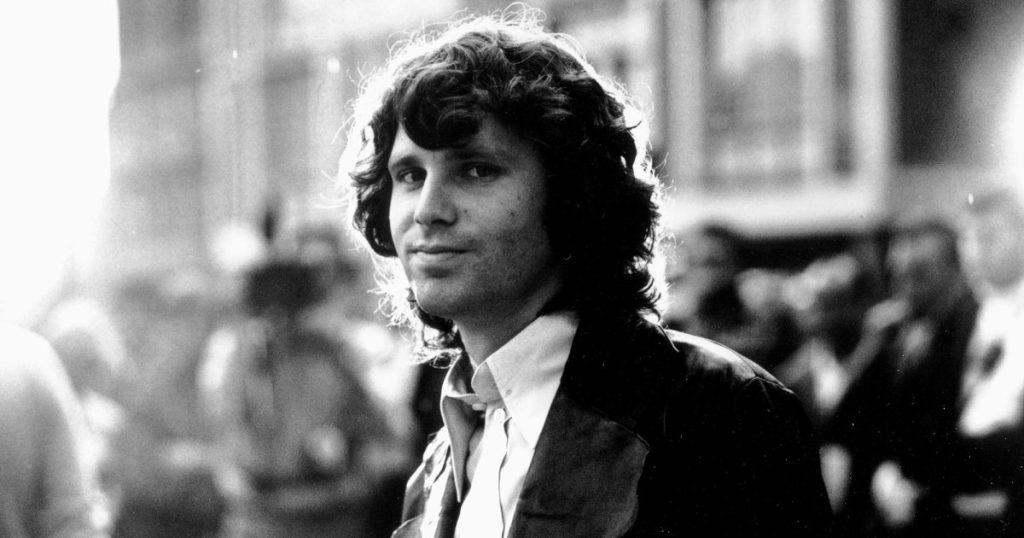The Enigma of Jim Morrison’s Demise: A Look at the Life, Death, and Conspiracy Theories Surrounding The Doors’ Frontman
Jim Morrison, the enigmatic frontman of The Doors, remains a captivating figure in rock and roll history, even decades after his untimely death in Paris in 1971. His poetic lyrics, charismatic stage presence, and rebellious spirit cemented his status as a cultural icon, yet the circumstances surrounding his demise continue to fuel speculation and conspiracy theories. A new docuseries, "Before the End: Searching for Jim Morrison," delves into the mysteries surrounding his final days, featuring a rare interview with his brother, Andy Morrison, who offers a more grounded perspective on the events leading to the rock star’s passing.
Andy Morrison’s account challenges the more fantastical narratives that have proliferated over the years. He attributes his brother’s death to the cumulative toll of a demanding lifestyle marked by excessive alcohol consumption and declining health. This straightforward explanation contrasts sharply with the persistent rumors that Jim Morrison faked his own death to escape the pressures of fame and the demands of his musical career. While acknowledging Jim’s desire for a respite from the relentless touring and recording schedule, Andy dismisses the notion that he would have abandoned his passion for music altogether. He suggests that Jim’s move to Paris was intended as a temporary retreat, a chance to recharge creatively and potentially explore new artistic avenues, rather than a permanent exit from the public eye.
The conspiracy theories surrounding Jim Morrison’s death are explored in detail within the docuseries, revealing a devoted segment of fans who believe the rock icon orchestrated his disappearance and continues to live in anonymity. These theories are often fueled by the lack of an autopsy, which was not mandated by French law at the time, and the relatively swift handling of his remains. The absence of this crucial piece of medical evidence allows speculation to flourish, providing fertile ground for alternative narratives to take root. However, those closest to Morrison during his lifetime, including his bandmates, have largely dismissed these claims as wishful thinking, emphasizing the singer’s deep-seated connection to music and his inability to resist the allure of the stage.
Robby Krieger, The Doors’ guitarist, firmly rejects the notion that Morrison is still alive. He points to the singer’s inherent need to perform, citing incidents in Paris where Morrison would spontaneously join local bands on stage, demonstrating his enduring passion for music. Krieger argues that if Morrison were still alive, he would undoubtedly be performing somewhere, unable to suppress his artistic drive. This perspective, grounded in years of shared experiences and a deep understanding of Morrison’s character, carries significant weight in debunking the elaborate conspiracy theories.
Ray Manzarek, The Doors’ keyboardist, took a different approach, occasionally hinting at the possibility of Morrison’s continued existence. While Krieger respected Manzarek’s musical talent and valued their conversations, he expressed frustration with his bandmate’s occasional indulgence in these speculations. He viewed such comments as disingenuous, believing that Manzarek did not genuinely subscribe to the conspiracy theories but rather enjoyed the attention and mystique they generated. This difference of opinion between the surviving members of The Doors highlights the complexities surrounding Morrison’s legacy and the varying interpretations of his actions and motivations.
The docuseries "Before the End: Searching for Jim Morrison" offers a valuable opportunity to reassess the life and death of this iconic musician. By incorporating insights from those closest to him, including his brother Andy, the series attempts to ground the narrative in reality, countering the more sensationalized accounts that have proliferated over the years. While the enduring fascination with Jim Morrison’s fate is undeniable, the series encourages a shift in focus, urging viewers to appreciate his artistic contributions and the impact he made on the world of music, rather than getting lost in the labyrinth of conspiracy theories. Ultimately, the mystery surrounding Jim Morrison’s death may never be fully resolved, but his artistic legacy remains vibrant and continues to inspire generations of music lovers. The ongoing debate surrounding his final days serves as a testament to his enduring influence and the captivating enigma he continues to represent.

